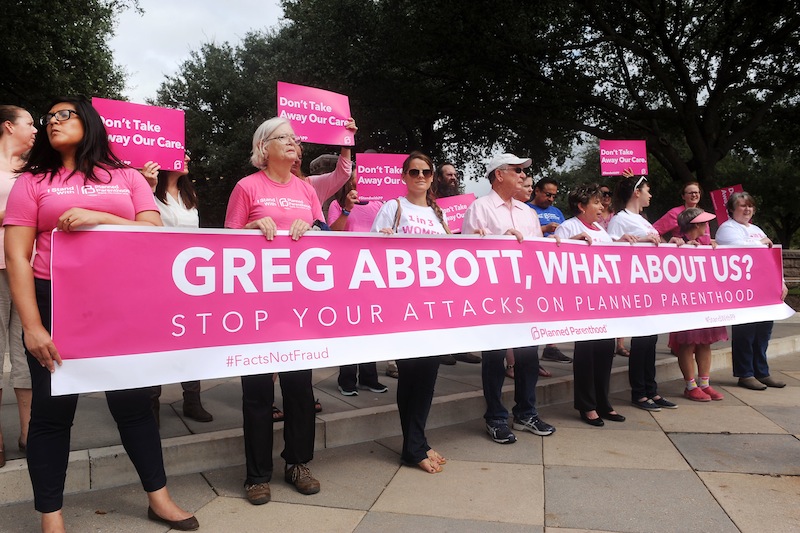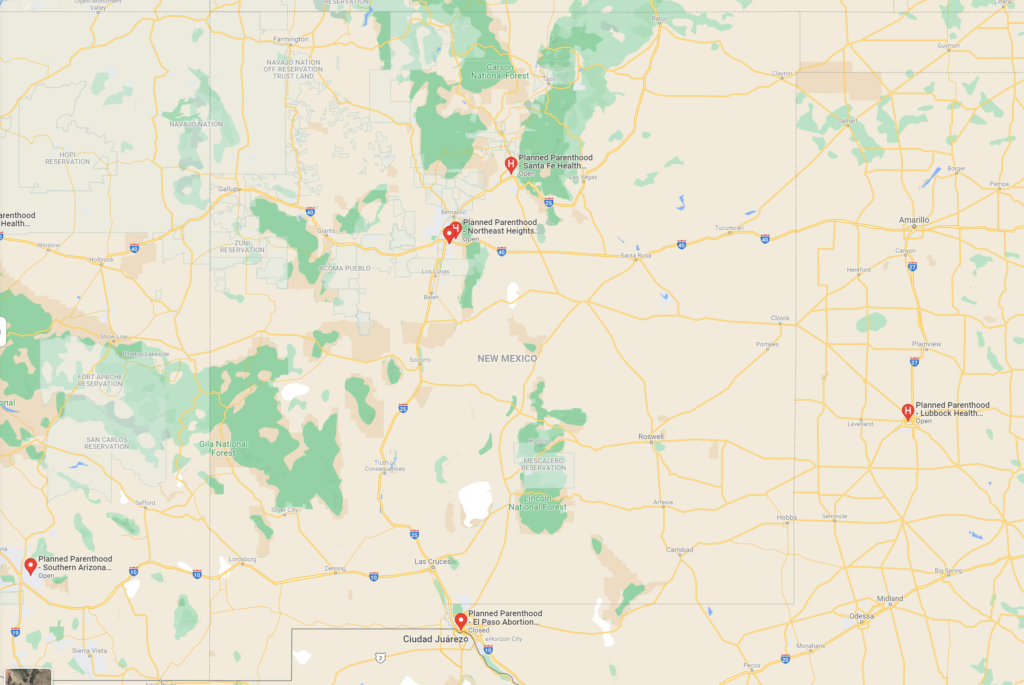
The state of Texas recently implemented one of the strictest abortion laws in the country. The new law bans abortions once a fetus’s heartbeat can be detected. This usually occurs around six-weeks. Many pregnant people may not even find out they are pregnant until after this point.
Because of the strict Texas law, nearby states, including New Mexico, are expecting to see an increase in visitors coming for abortion procedures. However, for southern New Mexico, the Texas ban will greatly limit options available to local residents.
New Mexico only has a handful of Planned Parenthood locations, all located in the northern part of the state. Not many clinics other than Planned Parenthood could be found on Google Maps that provide abortion services anywhere in southern New Mexico. The Women’s Reproductive Clinic of New Mexico, which is located about one mile outside El Paso, was one, and has many negative reviews on Google. “I’m really shocked that this place is running and doesn’t have a lawsuit for all the failed abortions. The doctor and his staff are very unprofessional,” posted one reviewer.

A few so-called clinics operate around the area, but these often are religious groups that attempt to talk pregnant people out of getting an abortion. Some can use emotionally underhanded tactics and mislead about basic pregnancy and abortion facts. They will often present themselves as an impartial reproductive clinic.
If someone in southern New Mexico searches for abortion services online, they might come across Legacy Pregnancy Resource Center. Their website states, “If you feel abortion is your only option, we would love to visit with you.” However, this facility does not offer abortion services nor does it refer visitors to abortion clinics. Instead its mission is to present “the Gospel of our Lord Jesus Christ to women and men facing an unplanned/crisis pregnancy” and will push people with unplanned pregnancies into carrying to term.
Typically, much of New Mexico would rely on Texas for abortion procedures, with Planned Parenthood facilities available in Lubbock and El Paso. Now New Mexicans will need to take the longer trip to the Albuquerque/Santa Fe area for an abortion after six weeks.
The new Texas law actually bans state officials from enforcing it, instead relying on private citizens to levy lawsuits against potential offenders. This was a likely workaround to avoid challenges by the courts since the landmark Roe v. Wade decision in 1973 gave women the right to decide to get an abortion without excessive government interference.
While most private citizens would not be willing to mount a lawsuit against someone having an abortion, or have the resources to pursue it, anti-abortion groups have stepped in to attempt to organize efforts to police abortion in the state. Anonymous tip lines have been created allowing people to submit tips of people they suspect of getting an abortion after six weeks or assisting someone in getting one. Some of these tip lines have been overrun by prank submissions as people across the country are outraged over the Texas law.
The law creates a kind of “bounty system”, rewarding each successful lawsuit with a minimum of $10,000. And it’s not just the person having the abortion at risk. Anyone aiding or abetting in an abortion after six weeks can also be liable, which would include doctors, family and friends or anyone contributing to an abortion fund.\
The Texas law also has no exception for cases of incest or rape.
A woman’s right to choose to have an abortion has long been a popular position among Americans with polls typically ranging from 60 to 70% in favor. However, anti-abortion activists have made this single issue an important litmus test in the Republican Party which has resulted in many attempts to outlaw and restrict abortion across the nation.
The Biden Administration has expressed their intention to challenge the Texas abortion ban through whatever legal means may be available, saying the law “sort of creates a vigilante system.” Legal experts agree that while a challenge to this law might ultimately be successful, the law will remain in place until that time. President Biden has described the law as “almost un-American” and said his administration is “evaluating all options to protect the constitutional rights of women.”
So while the future of abortion rights in Texas is still in limbo, the present reality is that most abortions are now banned in Texas. This will greatly limit the options for many New Mexicans in need of an abortion even though abortion is fully legal here.


